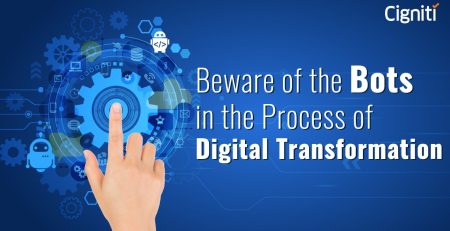What is the need of software testing for business resilience
Software testing used to be a phase in the software development lifecycle – a phase which was often skipped or neglected, resulting in sub-optimal quality of the released product. Then came Agile, and DevOps, and along came shift-left, shift-right, & shift everywhere practices, continuous development, continuous integration, & continuous testing pipelines. And automation. The introduction of these advancements in the way software is developed and released in the market allowed businesses across industries to deploy premium quality products. High quality products released at high speed resulted in higher customer satisfaction, which in turn led to greater credibility and trust for that business. But, what it really built was resilience.
Customers, who place their trust in a business that offers them high-quality releases, make a business resilient and empower them to continue delivering value even when the times are tough. The past few months are probably the toughest of the times that we all have seen in this lifetime. Such a massive blow on the global health has also left a great impact on the world economy. The main reason for which is mostly the unprecedented and never-seen-before nature of this pandemic. In situations like these, after responding to the immediate concerns, it is imperative for businesses to develop resilience – to their services, values, resources, and abilities. As many economies have tackled the ‘continuity’ need and are getting prepared to reopen and enter their own version of the ‘new normal’, business resilience takes the maximum priority.
Podcast: Why Agile Organizations Require Agile Leaders
Each sector resorted to digital solutions for continuing their services amid the lockdowns and social distancing, with several of them finding new ways of enhancing their service efficiency while ensuring safety. Now, as due to the pandemic, the digital and the physical layers of a business are overlapping and mostly merging together, performing software testing of the digital solution becomes the key to developing business resilience. Let us talk about how each of the industry is tackling the situation and trying to build resilience.
To combat the novel pathogen, novel vaccines are being developed. For mitigating the unexpected impact it has caused, innovative way are being taken and next-gen technology solutions are being adopted. As our healthcare workers are tackling the cases on the frontline, the payers and providers are inventing and embracing advanced solutions to improve their care efficiency. They are rapidly integrating remote monitoring devices and telehealth platforms within the complex healthcare workflows to deliver quality care to the non-emergent cases as well. The AI and RPA adoption has accelerated as the industry seeks to automate its iterative and cumbersome processes for relieving the staff workers for tending to the patients. RPA can take over the appointment scheduling, claims processing & management, and various administrative tasks while AI is driving smart R&D in pharmaceuticals and accelerating vaccine development.
2. BFSI
The world of payment transactions has become dominantly digital. Banking, financial transactions, insurance claims adjudication – everything is now simply a few taps away. The digital ecosystem of the BFSI sector needs to strengthen as the world economy faces months of uncertainty. Strengthened digital platforms can prevent the cash flow disruption for minimizing any negative impact. Online solutions are available for smart wealth & management, mobile-based payments & phone banking, e-invoicing, claims prevention, management, and settlement processes. FinTech and InsurTech are gaining prominence as physical presence becomes redundant.
3. Retail
As the world entered a global lockdown situation, shops closed down, people resorted to their homes, and e-commerce stores stopped shipping. When social distancing is being advocated, a touch-intensive place like retail stores creates apprehension in the customers. To help customers feel secure while they shop for essentials at retail stores, digital comes to the rescue by limiting the touch-required activities. Embedding zero-touch technologies such as RFID tags for inventory management and contactless payment systems at POS can enable retailers to continue their services with maximum resilience.
Supply chain, logistics, and, therefore, manufacturing industries are among the most heavily impacted by the pandemic. To build resilience, they need to speed up their adoption of Industry 4.0 which enables real-time connectivity via a smart cyber-physical space. Also known as the automation revolution, Industry 4.0 employs Artificial Intelligence, Machine learning, big data analytics, and Internet of Things. As it bridges the gap between the physical and digital, remote monitoring of production lines and unmanned delivery of goods become possible across the supply chain.
5. Telecom
Despite all the progress on the digital face of things, a weak telecom network may result in utter and complete disruption. Therefore, to facilitate resilience across all business and all industries, a robust telecom system is mission-critical. The outbreak might have delayed the 5G adoption but it also uncovered the necessity for strengthening the existing system for supporting the global digital environment. The top priority for the sector is to develop cybersafe remote technology capabilities to transition workers to remote work while maintaining productivity. The industry is focusing on driving operational sustainability and efficiency with the help of AI and edge computing.
6. Education
Being the most under-digitized sector, the world education system has been long due for a digital reform. Amid the COVID-19 outbreak, The World Bank and Ministries of Education in various countries started working together to develop and offer remote learning opportunities to the students in order to prevent the students from getting affected. In addition to videos, podcasts, on-demand lectures, virtual classes, and student-teacher collaboration platforms, the next-gen technologies such as Augmented Reality (AR) and Virtual Reality (VR) can help create a complete classroom experience for the students while enriching their learning experience.
The media consumption trend has been evolving for past many years as digitalization started taking a stronghold in the industry and for the consumers. Digital publications, video streaming platforms, online gaming, and social media slowly became the prime source of media consumption and entertainment for the audience. When the world restricted itself under a quarantined state, these digital media sources assumed the status of their sole mode of entertainment. In this case, media & entertainment companies need to ensure the delivery of flawless experience to their customers through high-performance applications and uninterrupted media streaming.
Why software testing is needed in this digital-first world
A system that remains dependable when facing changes (new threats, change in the fault model, updates of applications) is called resilient. This means, higher the dependability of a system, higher will be the resilience that it will have to offer to a business or industry ecosystem. Software testing and quality assurance makes digital technology dependable by checking it for seven criteria of availability, capacity, performance, simplicity, consolidation, costs, and trust.
Podcast: Digital Transformation Post COVID-19 and the Role of Resilient Leader
As Andrew Zolli puts it, “Resilience is the capacity of a system, enterprise, or person to maintain its core purpose and integrity in the face of dramatically changed circumstances.” The pandemic was unexpected and could not have been predicted. But now it has not only unveiled the weakness in our systems to deal with sudden changes but also offered a lesson & an opportunity to prepare these systems better for the future. Business continuity and business resilience are the two biggest concerns that any organization had to face. As we have managed to continue the business processes, it is time to build resilience across the business ecosystem. Software testing helps businesses develop this resilience by preparing their digital solutions for performing flawlessly in all kinds of situations.
How can we help
Cigniti is committed and prepared to help organizations across industries to tackle with the current crisis with secure, reliable, robust, and high-performance applications. By performing end-to-end software testing services on your application, we empower your digital presence and help you build business resilience. To know how we are helping your industry deal with the COVID-19 crisis while minimizing the overall impact, read our COVID-19 response resources.
Schedule a discussion with us to speak with our experts and learn how we can help you overcome your software testing related challenges.





Leave a Reply